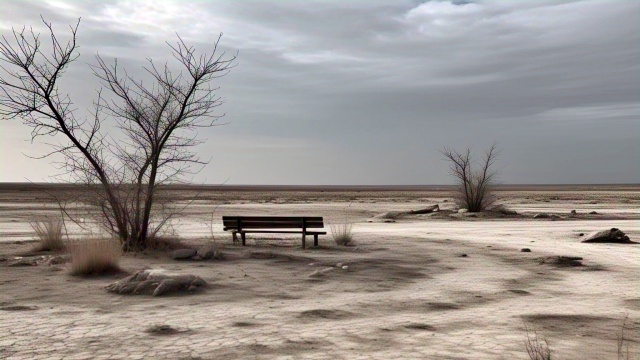If there’s one theme I love revisiting, it’s the idea that things are not always as they seem. Sometimes, we’re mistaken, deluded, or even tricked. Other times, we’re simply entertained by illusions or harmless white lies. Take the phrase, “May you live in interesting times.” It’s often called an Ancient Chinese Curse, but it’s not. The Chinese never said it. Someone added the “ancient” bit to make it sound mysterious and wise. It’s a great example of how we spice up stories to make them more intriguing.
But what about the opposite? What about uninteresting times? When was the most boring day in history? And why does the idea of “boring” fascinate us so much? Let’s dive into the curious world of the mundane and discover why even the most uneventful moments can be oddly captivating.
The Myth of the Ancient Chinese Curse
The phrase “May you live in interesting times” sounds profound, doesn’t it? It feels like it carries the weight of centuries-old wisdom. But here’s the twist: it’s not ancient, and it’s not Chinese. Historians trace it back to the 1930s, when a British diplomat likely coined it to sound worldly and wise. Over time, people added layers to it, like “May you come to the attention of the Government,” to make it sound even more ominous.

The irony is that the phrase itself is a trick—a clever way to make us think twice about what “interesting” really means. Wars, disasters, and upheavals are “interesting,” but who wants to live through that? Sometimes, boring is better.
The Most Boring Day in History
What makes a day boring? Is it the absence of big events, famous births, or dramatic headlines? According to a team of Cambridge researchers, the most uneventful day in the 20th century was April 11, 1954. Using a computer program to analyze historical data, they found that nothing particularly noteworthy happened on that day.
Sure, a few things occurred: a Turkish physicist was born, a footballer retired, and the Queen opened Parliament in Ceylon. But no major global events, no iconic figures passing away, and no groundbreaking discoveries. It was, by all accounts, a day where the world just… chugged along.

But here’s the paradox: the fact that this day is labeled the most boring makes it interesting. It’s a day that stands out precisely because nothing happened. It’s a reminder that even in the quietest moments, there’s something worth noticing.
The Day with No News
If April 11, 1954, was boring, then April 18, 1930, takes it to another level. On that day, the BBC Radio newsreader famously announced, “Good evening. Today is Good Friday. There is no news.” Instead of headlines, the station played piano music. Imagine tuning in for updates and hearing… nothing. It’s a fascinating snapshot of a time when the world was so calm that even the news had nothing to report.
This raises an intriguing question: Is the absence of news inherently boring, or is it a rare moment of peace in an otherwise chaotic world?
The Most Boring Place on Earth
Boring isn’t just about time—it’s also about place. In England, the title of most boring location goes to a one-kilometer square of farmland near Ousefleet, Scunthorpe. On the Ordnance Survey map, this spot is almost entirely featureless. No roads, no contour lines, not even a single landmark—just an empty field clipped by an overhead power line.
But is it truly boring? Or does its emptiness make it strangely compelling? Sometimes, the absence of something can be just as thought-provoking as its presence.
Silence as Art: John Cage’s 4′33″

Speaking of absence, let’s talk about John Cage’s 4′33″, a musical piece often called “Four Minutes and Thirty-Three Seconds of Silence.” But it’s not just silence. The “music” is the ambient noise in the room—the rustling of clothes, the creaking of chairs, the hum of the air conditioner. It challenges us to rethink what music is and what art can be.
Interestingly, 273 seconds (the length of the piece) corresponds to –273°C, the temperature of absolute zero. It’s a clever nod to the idea of nothingness. Cage’s work forces us to confront our expectations and question what we consider meaningful. Is silence boring? Or is it an opportunity to listen more deeply?
Why Boring is Fascinating
So, why are we so intrigued by the idea of boring days, empty places, and silent music? It’s because they challenge our assumptions. We live in a world that values constant stimulation, where every moment is filled with noise and activity. But when we strip all that away, we’re left with something raw and real.
Boring moments remind us that life isn’t always about grand events or dramatic twists. Sometimes, it’s about the quiet, the mundane, and the ordinary. And in those moments, we often find the most profound truths.
Conclusion
The next time you find yourself in an uninteresting moment, don’t dismiss it. Instead, take a closer look. What can you learn from the silence, the emptiness, or the stillness? As the (fake) Ancient Chinese Curse reminds us, interesting times aren’t always desirable. Sometimes, the most unremarkable days are the ones that stay with us the longest.
So, here’s to the boring days, the empty spaces, and the silent symphonies. They may not be flashy, but they’re full of meaning—if only we take the time to notice.
By exploring the mundane, we uncover the extraordinary. After all, even the most uninteresting times have a story to tell.

